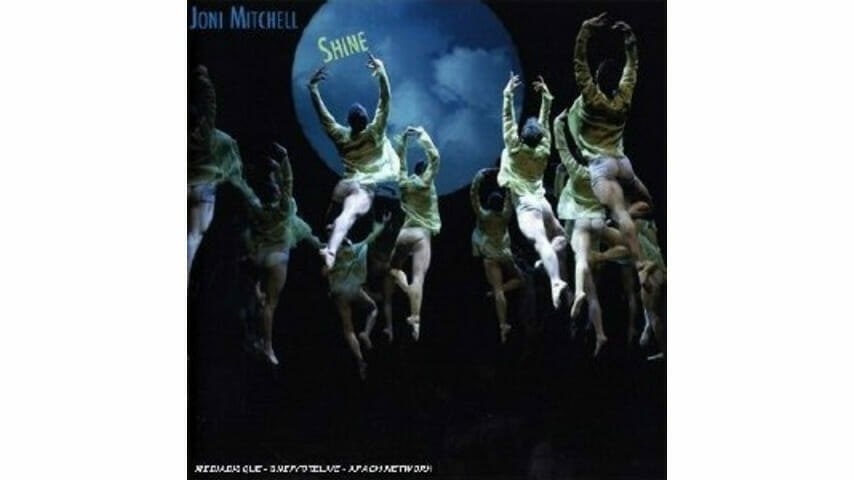Joni Mitchell: Shine

Shine A Lite
Environmentally focused new record disappoints
If environmental crises are going to dominate our public discussion in this century—and it seems inevitable that they will—we’re going to need some good pop songs to help us sort out our feelings on the matter. So far, the track record hasn’t been reassuring. Most songs about the environment simply transfer platitudes from bumper stickers to the lyric sheet and attach them to hackneyed singalong melodies; they lack the evocative details and dramatic con?ict that engage us as listeners.
Even songwriters as good as Marvin Gaye (“Mercy Mercy Me [The Ecology]”) and Neil Young (“Be the Rain”) have been defeated by the challenge. There have been a handful of success stories—such as 10,000 Maniacs’ “Poison in the Well,” John Prine’s “Paradise,” Dave Alvin’s “Dry River” and Midnight Oil’s “Warakurna”—but the best model is still Joni Mitchell’s “Big Yellow Taxi,” from her 1970 album Ladies of the Canyon.
Mitchell reprises this song on her new album Shine, in an arrangement that injects a push-and-pull rhythm sparked by short bursts of accordion, acoustic guitar and synth ricocheting off of one another. But it’s still the springing melody, the tongue-in-cheek satire and small details that delight. Because she can make us laugh at the new pink hotel and the tree museum, we lower our guard enough to feel the sting of “You don’t know what you’ve got till it’s gone.” Of the seven songs with new Mitchell lyrics on Shine (there’s also an instrumental and an adaptation of Rudyard Kipling’s poem “If”), ?ve directly address environmental problems.
-

-

-

-

-

-

-

-

-

-

-

-

-

-

-

-

-

-

-

-

-

-

-

-

-

-

-

-

-

-

-

-

-

-

-

-

-

-

-

-








































